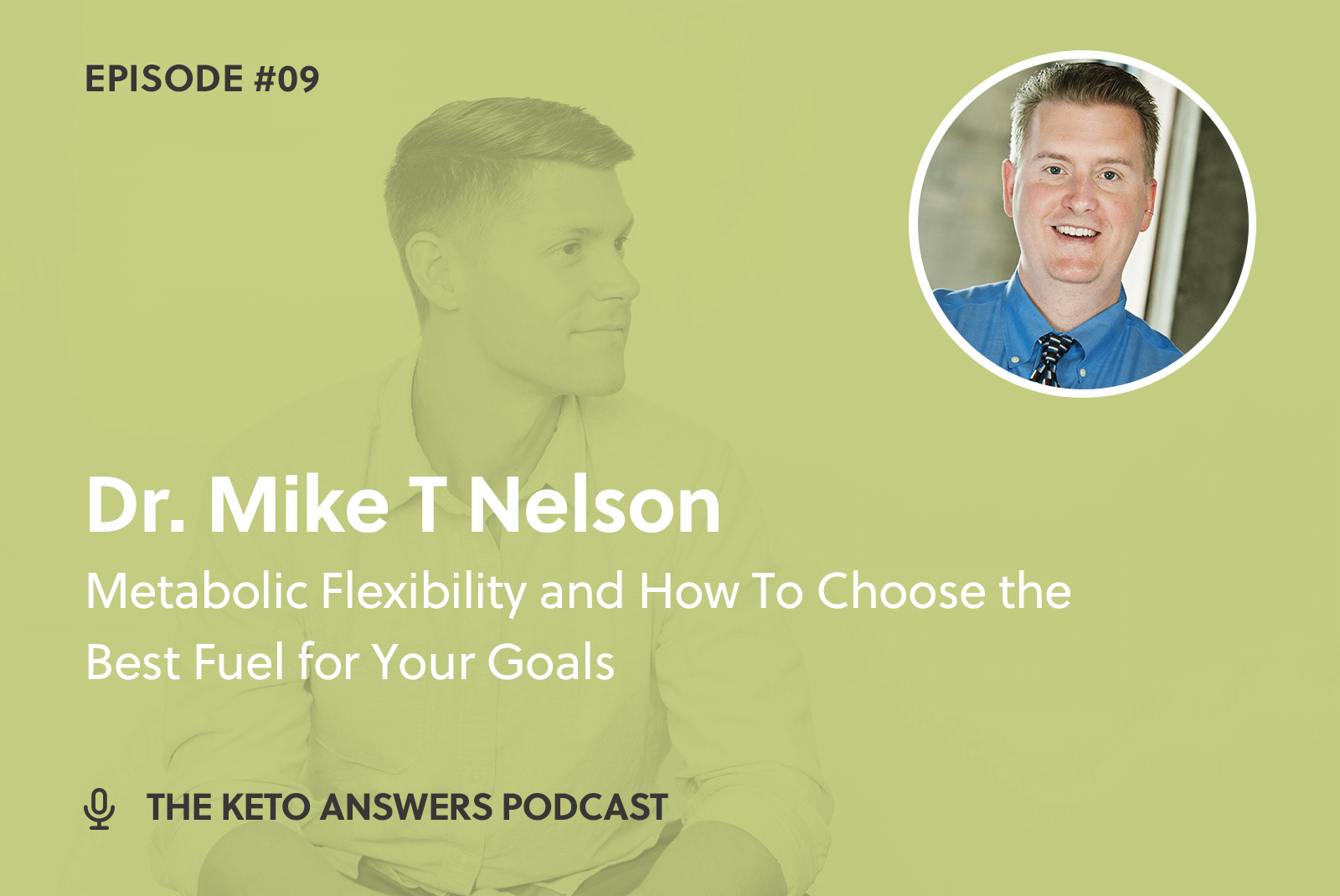
Episode #9
Metabolic Flexibility and How To Choose the Best Fuel for Your Goals
The human body is a fascinating machine with trillions of moving parts working together 24/7 to keep you healthy. And just like any machine, you have to maintain it or it will break down. One of the keys to keeping your body in tip-top shape is metabolic flexibility. There are two types of fuel your […]
Guest
Mike T. Nelson

The human body is a fascinating machine with trillions of moving parts working together 24/7 to keep you healthy. And just like any machine, you have to maintain it or it will break down.
One of the keys to keeping your body in tip-top shape is metabolic flexibility.
There are two types of fuel your body can run on: glucose (carbs) and ketones (fat). By learning to switch between them as needed, your body can work efficiently in different situations.
This flexibility gives you an edge in workout performance, recovery, and brain function.
Today’s guest, Dr. Mike T Nelson, has studied metabolic flexibility inside and out and knows exactly how to use it for peak performance.
He has a PhD in Exercise Physiology, a Masters’ in Biomechanics, and he’s a professor and a member of the American College of Sports Medicine. In his 18-year long career, he’s carefully studied how the body works and how to optimize it through dietary and lifestyle changes.
His approach for treating patients has become famous for taking scientific findings and turning them into remarkably actionable steps.
One of the secrets behind Dr. Nelson’s success is he’s constantly running tests. He measures the effect of different foods and habits on health markers of volunteers and his own. Among his favorite things to test is blood sugar, for which he’s used every imaginable food including Pop-Tarts and ice cream.
Thanks to his experience, Dr. Nelson knows when your body should run on ketones from fat and when it should run on carbs, and in this episode he tells us all about it.
Ketones serve as a very good alternative fuel for the brain. Share on XJoin me as I sit down with Dr. Nelson to take a deep dive into metabolic flexibility, switching between fat and carbs, his experiments on nutrition and physiology, and much more.
In this episode, we go over
- What metabolic flexibility is and why it’s important
- How to choose the right fuel for your body according to your workout goals
- Why relying solely on carbs or fats is a bad idea
- When you should and shouldn’t do keto
- What happens when you overload on carbs after being on ketosis for a long time
- How ketones help the brain
- The best alternative fuels for the brain after a brain injury
- Dr. Nelson’s experiments with glucose levels on patients and himself
- Why it’s important to measure your blood sugar
- What happens to your blood glucose when you eat Pop-Tarts and ice cream
- Intermittent fasting
- What heart rate variability (HRV) is and why you should measure it
- Dr. Nelson’s advice for lowering stress and sleeping better
If you enjoyed this episode, subscribe to the Keto Answers Podcast on iTunes to get automatic updates. Use Android? Click here to subscribe on Stitcher and here to subscribe on Google Play Music.
Mentioned in This Episode
- Dr. Nelson’s website
- Dr. Nelson’s Twitter
- Glucose Monitor: Freestyle Libre Reader
- Dr. Ben House
- Oura ring
More Resources
- Ketosis for Metabolism Control
- “Fat Adapted”: The Beginner’s Guide to Fat Adaption on Keto
- 008: Boosting Insulin Sensitivity and Workout Performance with a Ketogenic Diet – Rachel Gregory and Dr. Brian Lenzkes
- 007: Eliminating Inflammation with a Personalized Ketogenic Diet – Dr. Will Cole
- Top 7 Basic Metrics to Track on a Low-Carb, Ketogenic Diet







